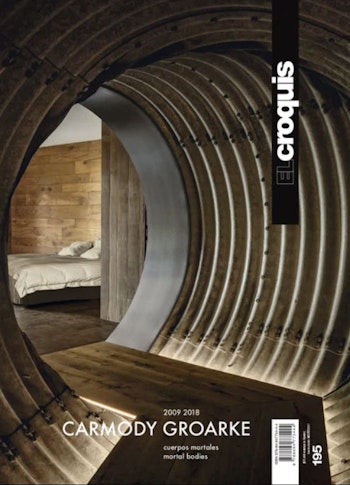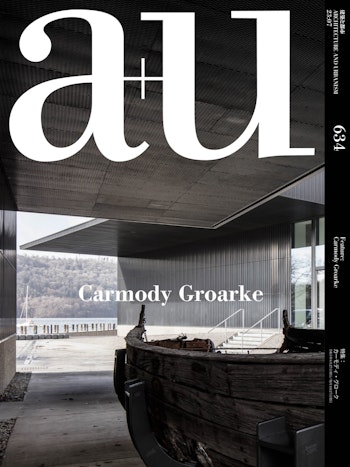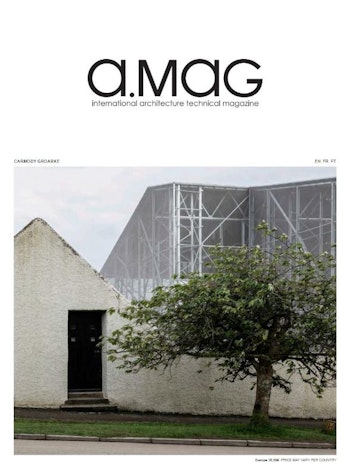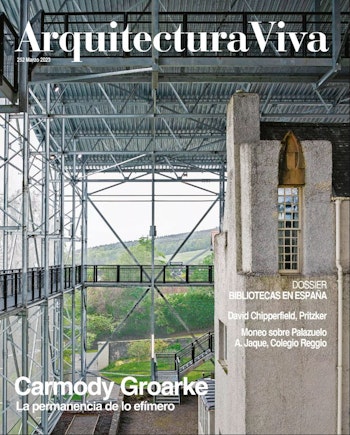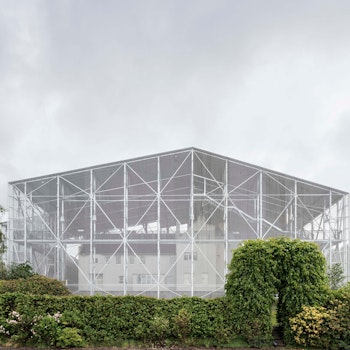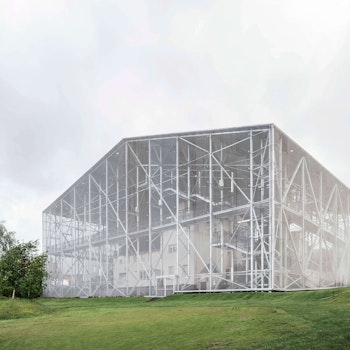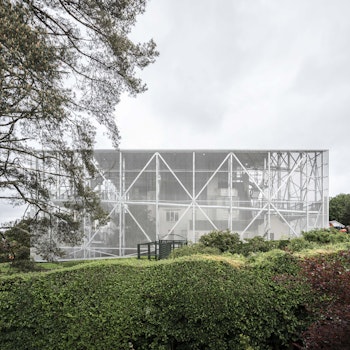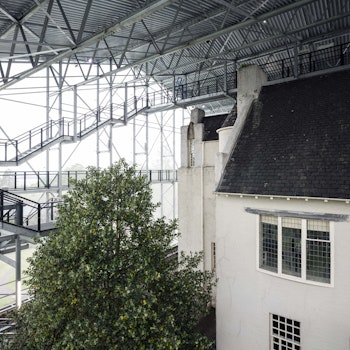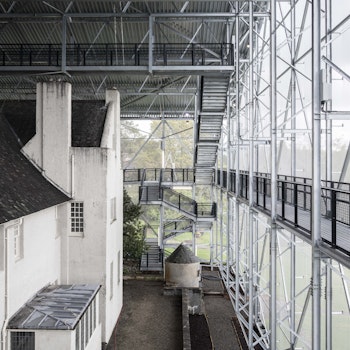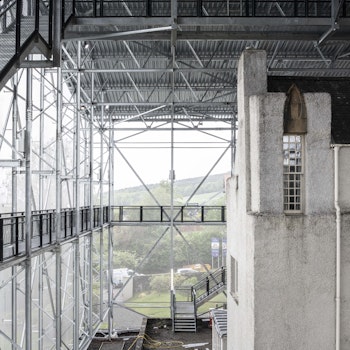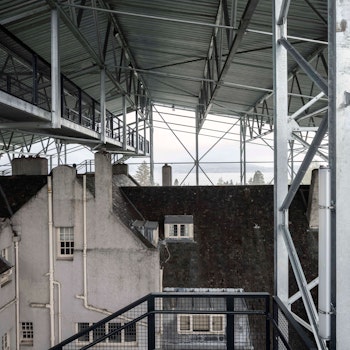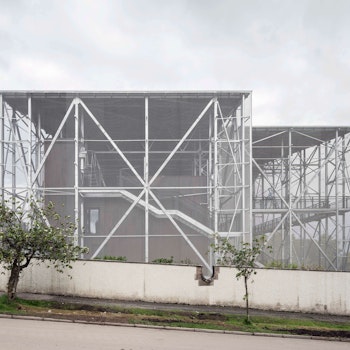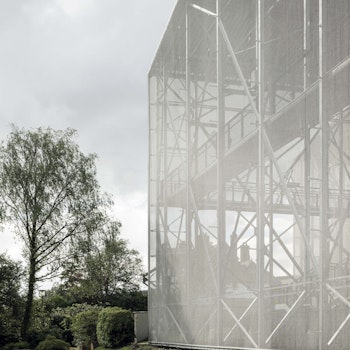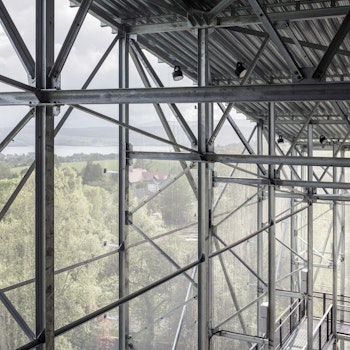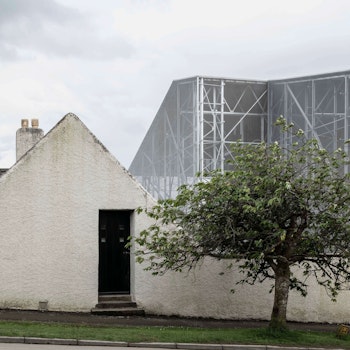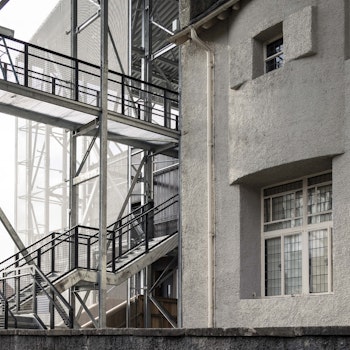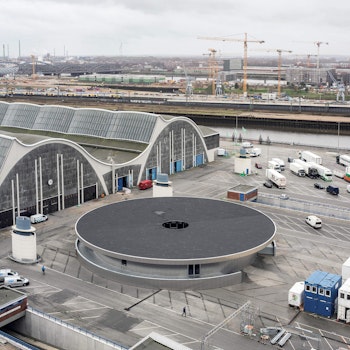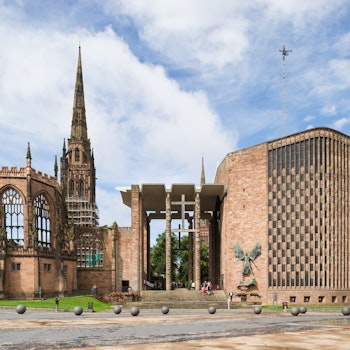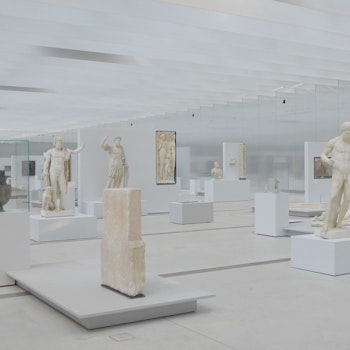ARCHITECT
CARMODY GROARKE
PUBLICATIONS a.mag, Arquitectura Viva, a+u, El Croquis
The Hill House is one of Charles Rennie Mackintosh’s most significant works, one of Scotland’s most acclaimed buildings, and a seminal part of early 20th century European architecture. Built in 1902 for the publisher Walter Blackie and his young family, it is situated in Helensburgh, 30km west of Glasgow, and commands panoramic views south over the River Clyde estuary.
Mackintosh’s domestic masterpiece sits like a 20th-century Scottish tower house, with its roughcast walls, picturesque slate roofline, asymmetrical disposition of windows, and lack of historic ornament. The house proposed a radical layout and three-dimensional spatial progression, and although the architecture was embedded in the tradition of Scottish Baronial, Mackintosh was also clearly influenced by the contemporary technological advances of Modernism happening elsewhere in Europe. This unusual hybridisation of tradition and invention in the construction of the building has led to some fundamental long-term problems of prolonged water damage that require a major conservation project to help the house survive.
Rather than incarcerate the house away from view whilst the restoration is undertaken, a more radical approach to active conservation has been taken.
As an integral part of this process of conservation, which it is thought will take up to 15 years, the project places a ‘big-box’ temporary museum on the site to contain and protect the Hill House as an ‘artefact’, whilst also maintaining access to the house for visitors.
The new museum’s architectural identity is an abstracted garden pavilion whose walls are covered entirely with a stainless-steel chain-mail mesh. This semi-permanent enclosure provides a basic ‘drying-room’ shelter to the original house whilst its rain-soaked existing construction is slowly repaired. This delicate enclosure also allows uninterrupted views, night-and-day, to-and-from the landscape to Mackintosh’s architectural icon.
The cross-braced steel frame is designed to be grounded with minimum impact on the existing terraced-garden landscape.
Within this safe, sheltered construction working territory, the “museum” provides a remarkable visitor experience of the conservation in progress, achieved by an elevated walkway which loops around and over the Hill House at high level. The museum’s enclosure also contains visitor facilities in a timber standalone building.
source: Carmody Groarke
YOU MAY ALSO LIKE

